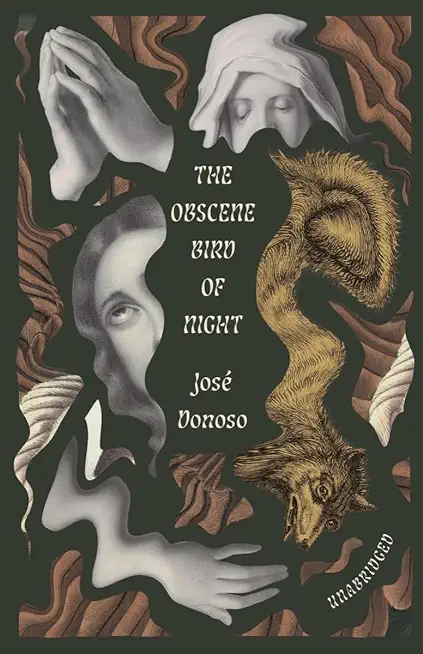
Deep in a maze of musty, forgotten hallways, Mudito rummages through piles of old newspapers. The mute caretaker of the crumbling former abbey, he is hounded by a coven of ancient witches who are bent on transforming him, bit by bit, into the terrifying imbunche: a twisted monster with all of its orifices sewn up, buried alive in its own body. Once, Mudito walked upright and spoke clearly; once he was the personal assistant to one of Chile's most powerful politicians, Jerónimo de Azcoitía. Once, he ruled over a palace of monsters, built to shield Jeronimo's deformed son from any concept of beauty. Once, he plotted with the wise woman Peta Ponce to bed Inés, Jerónimo's wife. Mudito was Humberto, Jerónimo was strong, Inés was beautiful--once upon a time... Narrated in voices that shift and multiply, The Obscene Bird of Night frets the seams between master and slave, rich and poor, reality and nightmares, man and woman, self and other in a maniacal inquiry into the horrifying transformations that power can wreak on identity.
Now, star translator Megan McDowell has revised and updated the classic translation, restoring nearly twenty pages of previously untranslated text that was mysteriously cut from the 1972 edition. Newly complete, with missing motifs restored, plots deepened, and characters more richly shaded, Donoso's pajarito (little bird), as he called it, returns to print to celebrate the centennial of its author's birth in full plumage, as brilliant as it is bizarre.
member goods
listens & views

CONCERTO FOR VIOLIN & ORCHESTRA
by MENDELSSOHN-BARTHOLDY / DEBUSSY / GIULINI
COMPACT DISCout of stock
$17.75






